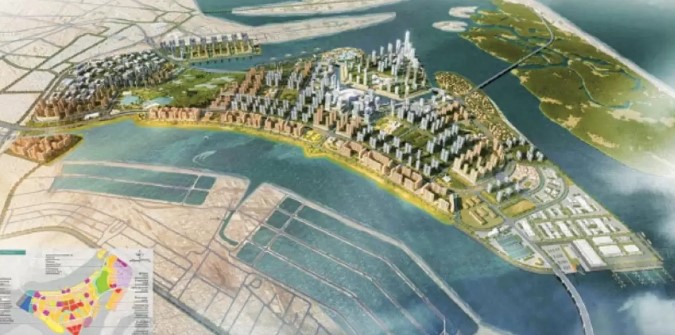Chinese company to invest more than US $ 3 billion to develop Pakistani coastal areas

Gwadar Pro
Karachi: A Chinese company is investing more than US $ 3 billion to develop the coastal areas under the China-Pakistan Economic Corridor (CPEC).
Special Assistant to Prime Minister (SAPM) Imran Khan on CPEC affairs Khalid Mansoor made this announcement here.
“The Karachi Port Trust (KPT) and a Chinese company have already signed an agreement worth more than US $ 3 billion under the CPEC project,” he informed.
He maintained that the government was working for the development of coastal areas of Karachi under the CPEC project.
Mansoor said that commercial and housing projects will occur in the adjacent Machar Colony of KPT.
Late last year, the Pakistani federal government had unveiled an ambitious plan to rebuild Karachi’s coastline under the CPEC with more than $ 3 billion “direct Chinese investment” that aims to overhaul city’s seaboard with new berths for the port, a new fishery port and a ‘majestic harbour bridge’ connecting it with Manora islands and Sandspit beach.
The Karachi Coastal Comprehensive Development Zone (KCCDZ) — spread over 640 hectares or 1,581 acres on the western backwaters marsh land of the KPT leading to revamp one of the oldest city slums Machhar Colony relocating its more than half a million population — is an initiative of the Ministry of Maritime Affairs.
The KCCDZ is the latest addition to CPEC projects aimed at providing Karachi with an ultra modern urban infrastructure zone, placing it among the top port cities of the world.
Mansoor reminded that the country after the year 2008, witnessed a shortage of energy with a daily 12 to 18 hours of supply cut off, saying that Pakistan needed to transfer its power generation from furnace oil to coal.
“As the US and European companies were not ready to finance Pakistan’s coal power plant, the country turned to China to finance its coal power plant,” Mansoor told journalists.
He explained that the CPEC project consists of three phases, the first phase was completed in 2020 to overcome the energy crisis of the country, which was a big barrier in the economic development of the country, followed by the second step to be completed in 2025 and third phase in 2030.





